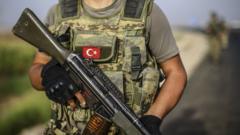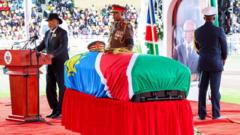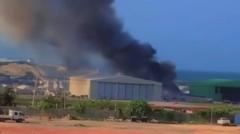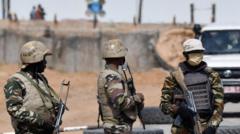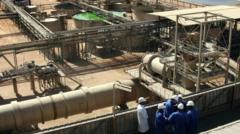This decision may significantly impact both Turkish domestic politics and regional dynamics.
**Kurdistan Workers' Party Announces Disarmament: A New Chapter in Turkish Politics**

**Kurdistan Workers' Party Announces Disarmament: A New Chapter in Turkish Politics**
The P.K.K. ends a four-decade-long conflict with Turkey, aiming for peace and greater Kurdish rights.
The Kurdistan Workers’ Party (P.K.K.), notorious for its protracted insurgency against the Turkish state, has officially announced the cessation of its armed struggle and plans to disband. This pivotal moment, declared on Monday, follows a call to action made by its leader, Abdullah Ocalan, who is currently imprisoned.
Initially formed in the early 1980s to champion Kurdish independence in Turkey, the P.K.K. has transitioned its objectives over the years, now advocating for enhanced rights for the Kurdish population, who constitute approximately 15% of Turkey's demographic makeup. With a staggering death toll exceeding 40,000 in violent confrontations and military operations, both the group and its adversaries have faced significant casualties.
The implications of this disarmament could extend beyond Turkey's borders, potentially influencing neighboring countries with their own Kurdish populations. Notably, the P.K.K. has been designated a terrorist organization by Turkey, the United States, and several other nations, complicating its international standing.
The following key questions arise in the wake of this development: What does this mean for the P.K.K.'s future and for Abdullah Ocalan's role within the movement? How will Turkey's government respond to this shift, and what subsequent steps will be taken to address the historical and ongoing grievances of the Kurds?
As this narrative unfolds, the dynamics within Turkey, particularly regarding the political landscape and the status of Kurdish rights, are likely to evolve markedly. Previous peace efforts have faced obstacles, but this new phase could offer an opportunity for dialogue and reconciliation.
Initially formed in the early 1980s to champion Kurdish independence in Turkey, the P.K.K. has transitioned its objectives over the years, now advocating for enhanced rights for the Kurdish population, who constitute approximately 15% of Turkey's demographic makeup. With a staggering death toll exceeding 40,000 in violent confrontations and military operations, both the group and its adversaries have faced significant casualties.
The implications of this disarmament could extend beyond Turkey's borders, potentially influencing neighboring countries with their own Kurdish populations. Notably, the P.K.K. has been designated a terrorist organization by Turkey, the United States, and several other nations, complicating its international standing.
The following key questions arise in the wake of this development: What does this mean for the P.K.K.'s future and for Abdullah Ocalan's role within the movement? How will Turkey's government respond to this shift, and what subsequent steps will be taken to address the historical and ongoing grievances of the Kurds?
As this narrative unfolds, the dynamics within Turkey, particularly regarding the political landscape and the status of Kurdish rights, are likely to evolve markedly. Previous peace efforts have faced obstacles, but this new phase could offer an opportunity for dialogue and reconciliation.





